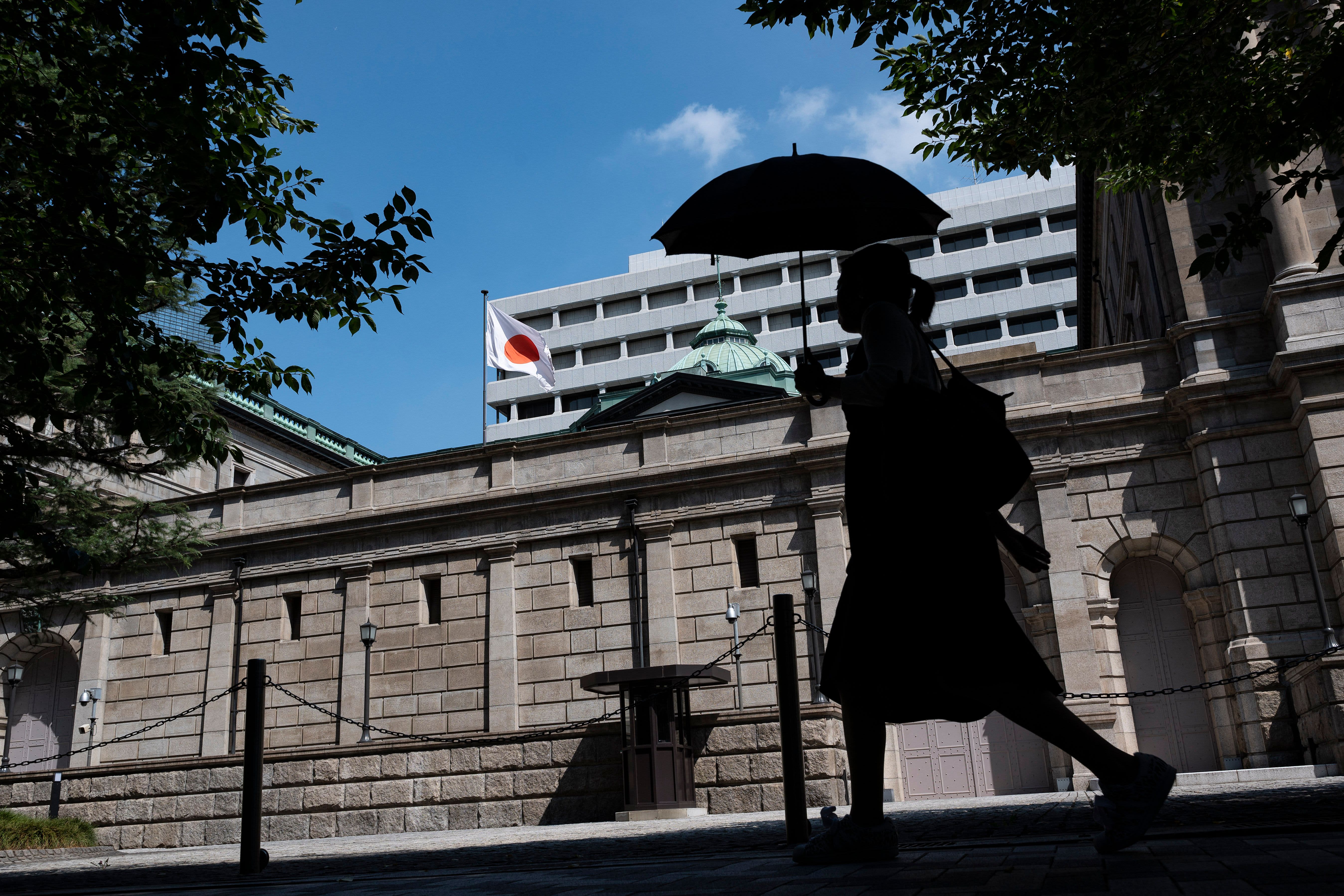
A pedestrian walks near the Bank of Japan building in central Tokyo on July 28, 2023.
richard a. brooks | AFP | Getty Images
While the move was expected, it comes after inflation in Tokyo in April was lower than expected, with core inflation at 1.6% compared to Reuters' expectations of 2.2%.
The Bank of Japan also said it would continue to conduct bond purchases in line with the March decision. The bank said earlier in March that it had bought bonds worth about six trillion yen ($83.5 billion) per month in the past.
There was no comment from the Bank of Japan on the yen in its monetary policy statement, which has weakened steadily since the Bank of Japan ended its negative interest rate policy last month and scrapped its yield curve control policy.
The currency breached the 156 level against the US dollar on Friday after the decision, and was recently trading at 156.7.
During a press conference later on Friday, Bank of Japan Governor Kazuo Ueda said that although the bank's monetary policy does not directly target currency rates, exchange rate fluctuations could have a “significant impact” on the Japanese economy and prices, According to a Reuters translation.
Ueda added, “If the yen's movements have an impact on the economy and prices that is difficult to ignore, this may be a reason to adjust policy,” according to statements translated by Reuters.
He noted that the weak yen did not have a significant impact on core inflation at the moment, but noted that “prices as a whole are overshooting,” Reuters reported. Ueda also noted that there is a risk that Japan could see another round of inflation caused by rising costs, according to the translation.
Cost inflation refers to price increases due to increases in production costs, as opposed to demand inflation, which occurs because demand exceeds supply.
“In measuring core inflation, we will not look at individual data. We will look at various indicators and economic factors behind price movements such as the output gap and inflation expectations,” Ueda said, according to the translation.
Separately, the central bank also released its second-quarter outlook for Japan's economy, raising its forecast for inflation in fiscal 2024.
The Bank of Japan now expects inflation to be between 2.5% and 3% for fiscal 2024, up from 2.2% to 2.5% in its January forecast.
Inflation is then expected to slow to “about 2%” in fiscal years 2025 and 2026, the bank added.
The Bank of Japan also lowered its GDP growth forecast for fiscal year 2024 to a range between 0.7% and 1%, down from January's forecast of growth between 1% and 1.2%.
In light of the outlook report, the Bank of Japan said that moving forward with its monetary policy will depend on future developments in economic conditions and prices. But she said easy financial conditions would be maintained “for the time being.”
The Bank of Japan acknowledges that uncertainties surrounding these economic and financial developments at home and abroad remain high. But if its forecasts come true and core inflation increases, the central bank said it would “adjust the degree of monetary easing.”

“Web maven. Infuriatingly humble beer geek. Bacon fanatic. Typical creator. Music expert.”





More Stories
Dow Jones Futures: Microsoft, MetaEngs Outperform; Robinhood Dives, Cryptocurrency Plays Slip
Strategist explains why investors should buy Mag 7 ‘now’
Everyone gave Reddit an upvote